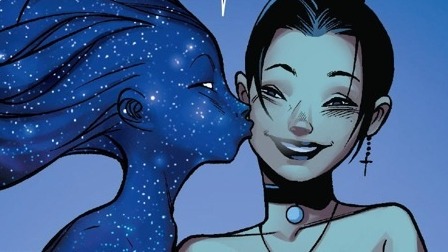Whose intervention ensured Star Trek saw the light of day?
Answer: Lucille Ball
Most people recognize and remember Lucille Ball as the lovable and silly star of one of America’s earliest and most loved sitcoms, I Love Lucy. What most people don’t know is that Lucille was a savvy business woman and that she and her husband Desi Arnaz had amassed a small fortune and owned their own studio, Desilu.
It was at Desilu that acclaimed Sci-Fi screenwriter and visionary Gene Roddenberry got his big break. Roddenberry pitched the Star Trek pilot to the studio as a sort of Western-inspired space adventure. While many within the studio balked at the idea, Lucille liked the idea and the first pilot was approved and filmed. The pilot was pitched to NBC and was promptly rejected on the grounds that it was too intellectual, not enough like the space-western they had been lead to believe it would be, and audiences wouldn’t relate to it. Lucille, a fan of Roddenberry’s work, pushed back against NBC and insisted they order a second pilot. Ordering a second pilot was a practice almost entirely unheard of and save for Lucille’s charisma and clout with the network it would never have happened.
Roddenberry shot the second pilot, NBC accepted it, and Star Trek premiered in 1966, thus beginning a new era in the Sci-Fi genre and laying the foundation for half a century of Star Trek fandom–an era that would have never come to pass without the intervention and insistence of Lucille Ball.
Bonus Trivia: After her divorce from Arnaz, Lucille bought out his share of their studio. As a result she became the first woman to both head and own a major studio. (*)
Now I love Lucy.
So few people know about this! Too few. Glad to see this turning up here. Also: it was through Lucille Ball’s influence that the concept of the rerun (previously unknown and thought to be worthless by studios to whom it was pitched) finally took hold. Desilu essentially pioneered the concept of syndication, and of the “syndication package” — the minimum number of episodes (initially 65, now sometimes more) necessary for a series to become commercially viable, via onward sales, for longer than its initial live run.
We have a lot to thank Lucy for besides that beautiful rubbery face. :)


